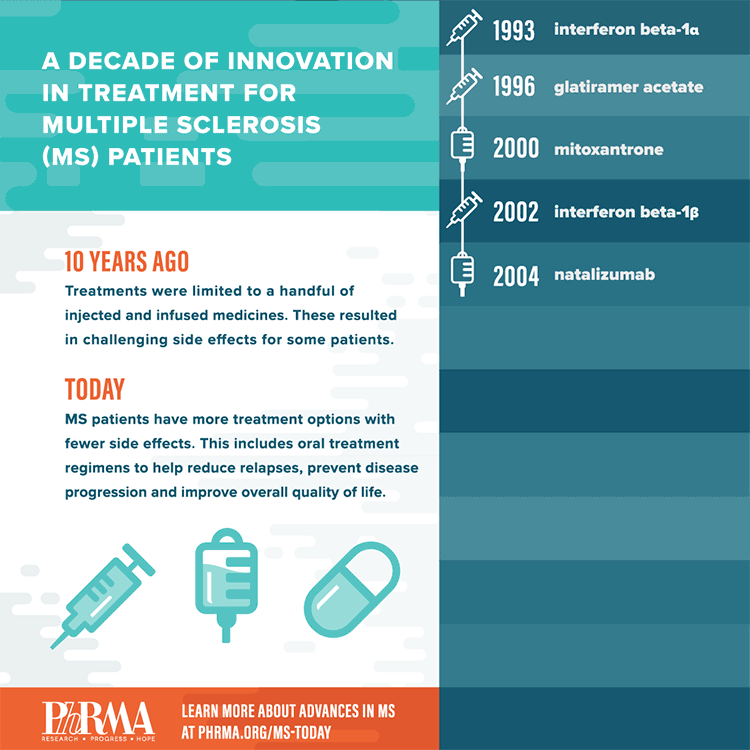Multiple Sclerosis (MS) Is A Devastating Chronic Autoimmune Disease That Affects The Neurological Systems Of More Than 400,000 Americans. While There's No Cure, A Decade Of Innovation Has Changed The Way We Treat The Disease And Enhance The Lifestyles Of People Living With It.
Multiple sclerosis (MS) is a devastating, chronic autoimmune disease that affects more than 400,000 Americans and 2.3 million people worldwide.
MS affects a person’s brain, spinal cord and optic nerves, causing problems with vision, balance, muscle control and other basic body functions. The severity of the disease varies patient to patient. Some patients suffer only mild symptoms, but others have trouble doing basic, daily tasks.
An MS attack or relapse can exacerbate existing symptoms or cause new ones. Relapses are followed by a partial or full remission with no apparent disease progression. Approximately 10 percent of MS patients experience a steady, progressive form of the disease for which there are no available treatments.
A decade ago, treatments often resulted in painful site reactions on the patient’s skin, and in some patients, it produced flu-like side effects including fever, chills, malaise, muscle aches and fatigue. These treatments were often invasive and logistically complex to administer. And with just a handful of available treatments, patients were left with few alternatives if these options failed.

